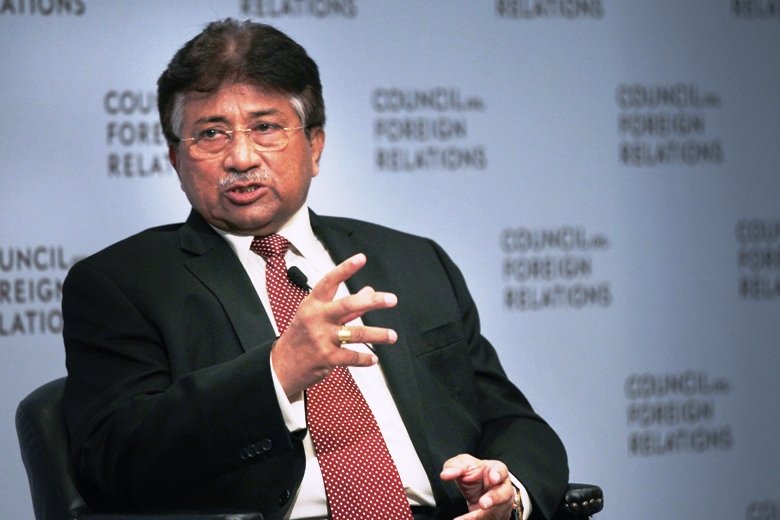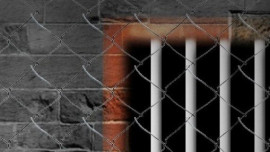
Justice Sayyed Mazhar Ali Akbar Naqvi told Musharraf's counsel to argue on the maintainability of the petition on Tuesday.
"How can the LHC hear this petition when matters relating to Musharraf are pending in the country’s top court [Supreme Court of Pakistan]?" asked Justice Naqvi.
"Also, how is the petition maintainable in LHC when the petitioner is a resident of Islamabad?"
Musharraf seeks suspension of high treason trial
The ailing former military ruler had last week petitioned LHC to stay the proceedings of a special court trying him for “subverting the Constitution on November 3, 2007” until he recuperates and appears before the court in person.
Citing the example of cases against former prime minister Nawaz Sharif, Musharraf’s counsel argued that the LHC had found Nawaz’s petition maintainable although his cases were also being heard in Islamabad.
“Nawaz Sharif is a resident of Lahore while Musharraf is a resident of Islamabad,” replied Justice Naqvi.
The counsel further contended that the treason case against Musharraf was filed without following due process. "The case was filed with only the approval of then-prime minister Nawaz Sharif. His cabinet's approval was never sought," said Musharraf's lawyer.
Justice Naqvi adjourned the proceedings till Tuesday and directed the former army chief's counsel to explain why his petition should be heard by the LHC.
On November 19, the three-judge special court, which has been hearing the high treason case against Musharraf since 2013, reserved its verdict after six years.
The verdict is likely to be announced on November 28 in the absence of Musharraf, who went to the United Arab Emirates in May 2016 for ‘medical treatment’ and has not returned since to face the court.
The high treason charge carries capital punishment in Pakistan.
However, ahead of the verdict, Musharraf filed a writ petition in the LHC under Article 199 and nominated the federation as respondent through the secretaries of Ministry of Interior and Ministry of Law, the Federal Investigation Agency (FIA) through its director-general and the special court through its registrar.
The former military ruler's petition states that he has not been able to return to Pakistan, despite a strong desire, due to his deteriorating health, multiple life-threatening ailments and his ageing mother.
He requested the court to pass direction and declare the impugned order passed by the special court on November 19 as unconstitutional.
He also requested the court to uphold the fundamental rights of the petitioner guaranteed under the Constitution.
“In exercising its discretionary relief, the court must look at the balance of convenience, which lies heavily in favour of the petitioner, as taking away his right to a pleader of his choice, as well as his right to an audience, as a direct consequence of his infirmity, will not only seriously prejudice his case but also set a precedent for all future cases where infirm accused are at a material disadvantage to healthy ones in defending their trails,” his petition read.
Musharraf, Justice Isa cases in focus as CJP Khosa’s retirement looms
He requested the court that the respondents be directed to conduct a proper and unbiased investigation into the case, particularly with regards to the names of all alleged aiders and abettors for the proper appreciation of facts and evidence at trial.
The former president contended that the application he had filed under section 265-K of CrPC may also be taken up by the special court and disposed of at the earliest.
Musharraf requested that operation of the offending portion of section 9 of the Criminal Law Amendments (special court) Act 1976, denying the accused an adjournment even on grounds of illness and thereby impacting this right to life, be suspended and declared unconstitutional and the trial be adjourned till the petitioner’s medical condition allows for his safe return to the country to face trial.
“The respondents are all performing functions in connection with the affairs of the federation and a petitioner is a person directly aggrieved by their actions in the present case, therefore, he has locus standi to bring the present judicial review proceedings before this court,” he concluded.
1732762837-0/Taylor-(3)1732762837-0-405x300.webp)
















COMMENTS
Comments are moderated and generally will be posted if they are on-topic and not abusive.
For more information, please see our Comments FAQ